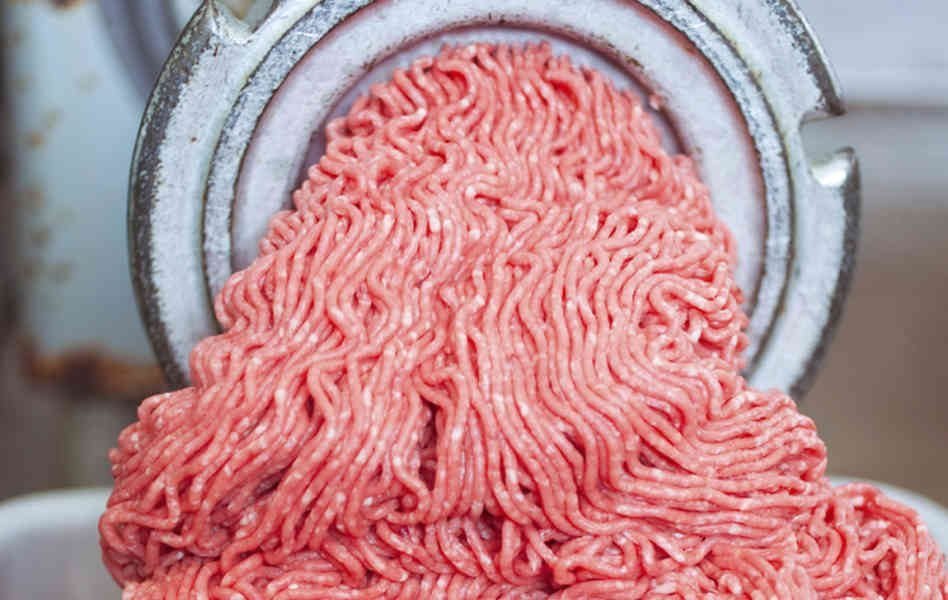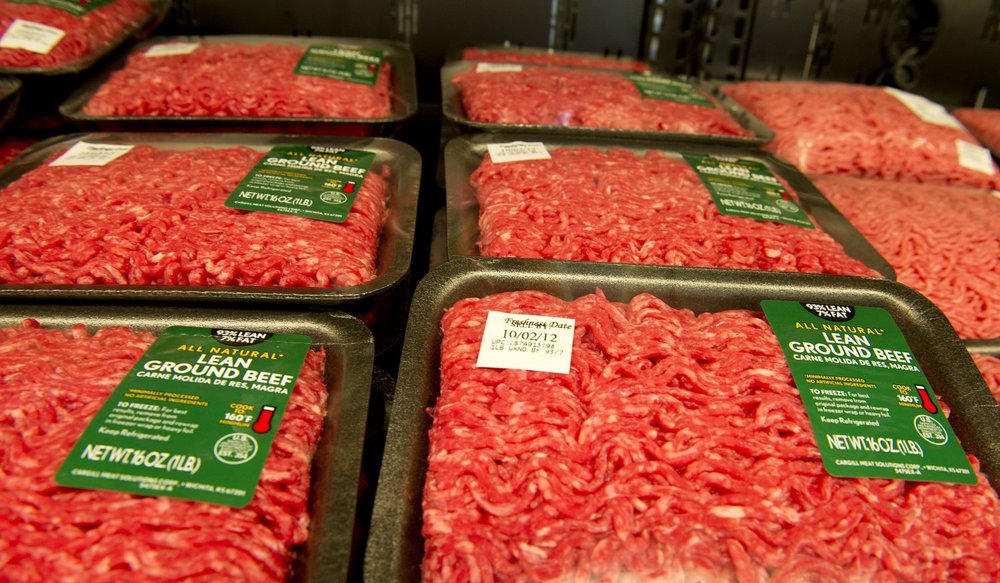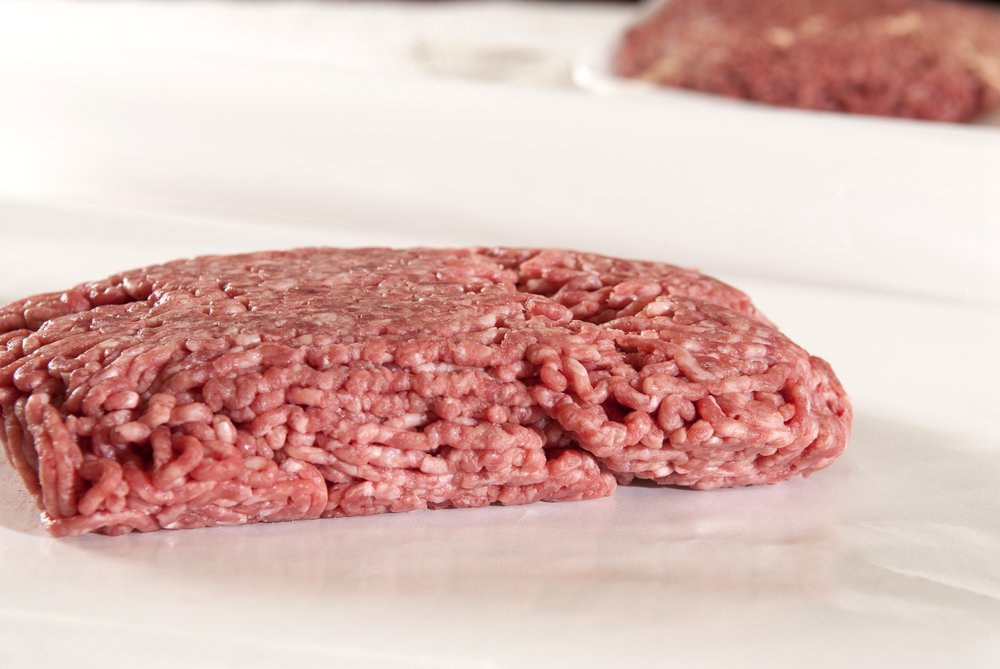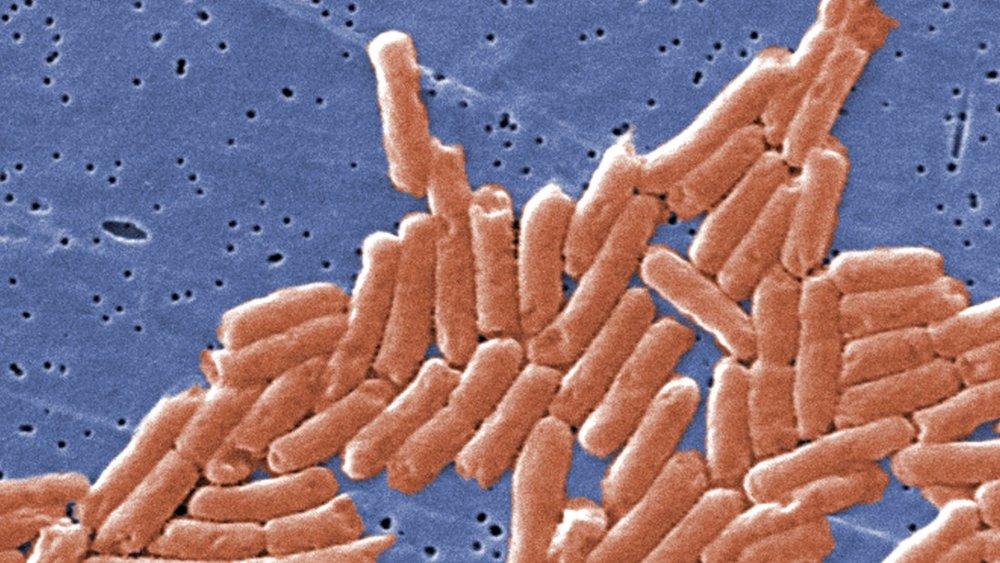
U.S. Hit by Dangerous Contamination as Eighteen Tons of Ground Beef Recalled

Firing up the grill for some beefy burgers tonight? You may have to think twice before purchasing any meat from Kroger stores which recently recalled more than 35,000 pounds of ground beef due to a plastic contamination. Now USDA is advising all consumers to thoroughly check the ground beef packets in their refrigerators before consuming them.

35,000 pounds of ground Kobe beef were recalled after a plastic contamination affected thousands of products across the country
Plastic Contamination
The U.S. Department of Agriculture announced on their website last week that a food processing company in North Carolina has recalled thousands of pounds of ground beef after some consumers complained that they found blue plastic bits mixed with the meat. Most of the consumers who complained said that they purchased the beef from a Kroger store, although the processing company may have distributed the contaminated products to other retailers around the country as well.
The food processor, JBS USA, responsible for the contamination, admitted that the workers in its Lenoir, N.C., facility may have forgotten to take off the plastic wrap off the meat before throwing it into the food processor for grinding. The announcement was made by the Food Safety and Inspection Service department of USDA which said that the processing facility is tracing all of its deliveries and recalling products that could potentially be contaminated with plastic.
Many Brands Affected
The safety department said that the meat, which was processed and packaged on March 22, 2018, has not triggered any adverse health reactions in consumers. However, it is not advised to eat meat contaminated with plastic bits which is why people must check the meats stored in their freezers and throw out or return any affected products.
The North Carolina-based processing company produces meat products for various brands and ships them to a number of distribution centers in Indiana and Virginia, from where the products are carried to retailers such as the Kroger stores. Other brands that may carry contaminated beef included Private Section Angus Beef, Laura’s Lean Beef, and JBS Ground Beef Angus Sirloin and Chuck. The USDA website details full description of the packaged meats consumers must be wary of including ground beef trays that carry a sell-by date of April 9, 2018 and a USDA number of EST. 34176.

The contamination has been categorized as a level II hazard by the USDA which means that there is little to no probability of any negative health consequences
Level II Hazard
Almost all Kroger 1-pound and 3-pound trays produced on March 22 including 80% Lean-20% Fat, 73% Lean-27% Fat, 85% Lean-15% Fat, Ground Sirloin 90%-10% Fat, and 93% Lean – 7% Fat ground beef varieties have been identified as part of the bad stock, according to USDA website. Many of Laura’ Lean Beef and Private Selection Angus Beef products have been recalled as well.
The contamination has been categorized as a level II hazard by the USDA which means that there is little to no probability of any negative health consequences from consuming the beef products mixed with hard plastic. Until now, no illnesses or adverse reactions due to the beef consumption have been reported by the health department.
FSIS urges consumers who may have been affected by the contamination to report their health concerns to the nearest healthcare provider. Any contaminated meat trays stored in the freezers should either be thrown away or returned to the store. A Kroger spokesperson recently confirmed that the contaminated meat trays have been removed from its stores’ refrigerators.
Not the First Mass Contamination

This is not the first time this year that the U.S. has encountered the problem of mass contamination. Last month news broke out that romaine lettuce had led to a dangerous E. coli outbreak which has now affected 121 people across 22 states and claimed one life.
The first case of E. coli due to lettuce consumption was first reported in mid-April, and since then, almost 50 people have been hospitalized due to serious symptoms and 14 have suffered from kidney failure. Since most packaged romaine lettuce does not carry information about its place of production, its hard to tell which products could potentially be contaminated. For now, Americans are advised to steer clear of all types of romaine lettuce to prevent illness.
In April, more than 200 million eggs were recalled by FDA due to a possible salmonella contamination which has been linked to 22 illnesses around the country. The farm responsible for the distribution of the bad egg stock has now paused its business until it conducts a thorough investigation of how the contamination occurred.
More in Weight Loss and Diet
-
Is It Safe to Travel to Paris? Essential Tips for Tourists
When considering a trip to Paris, one of the first questions that often arises is, “Is it safe to travel to...
June 20, 2024 -
Hematoma vs Bruise: What Is the Difference?
When it comes to injuries, hematoma vs bruise are often used interchangeably, but they refer to different medical conditions. Understanding the...
June 12, 2024 -
What Is Unipolar Depression? Here’s What You Need to Know Right Now
Depression casts a long shadow over many lives, with symptoms that affect everything from our energy levels to our ability to...
June 7, 2024 -
A Comprehensive Guide on How to Heal Anxious Attachment Style
If you often find yourself seeking constant reassurance from your partner or requiring endless validation to feel secure, you may be...
June 1, 2024 -
Why Is My Skin Peeling on My Face After Skincare? Here’s What You Need to Know
Experiencing skin peeling on your face after implementing a skincare routine can be perplexing and frustrating. This phenomenon, where the skin...
May 23, 2024 -
What Is a Mental Edge, and How Do You Get It?
Have you ever wondered why some individuals seem unshakably confident under intense pressure, finding a way to excel when it matters...
May 15, 2024 -
When to Worry About Varicose Veins? Here’s What You Need to Know
Varicose veins are a common issue, affecting about 20% of adults. They’re usually seen as unsightly blemishes on the legs but...
May 12, 2024 -
Why Is Discipline Important: The Ultimate Guide to the Importance of Discipline
Discipline is undoubtedly one of life’s most crucial character traits. It shapes how we approach tasks, manage our time, and...
May 3, 2024 -
Have I Fallen Out of Love or Am I Depressed? Everything You Need to Know
Have I fallen out of love or am I depressed? You’re not alone in this query. In the diversity of human...
April 26, 2024















You must be logged in to post a comment Login